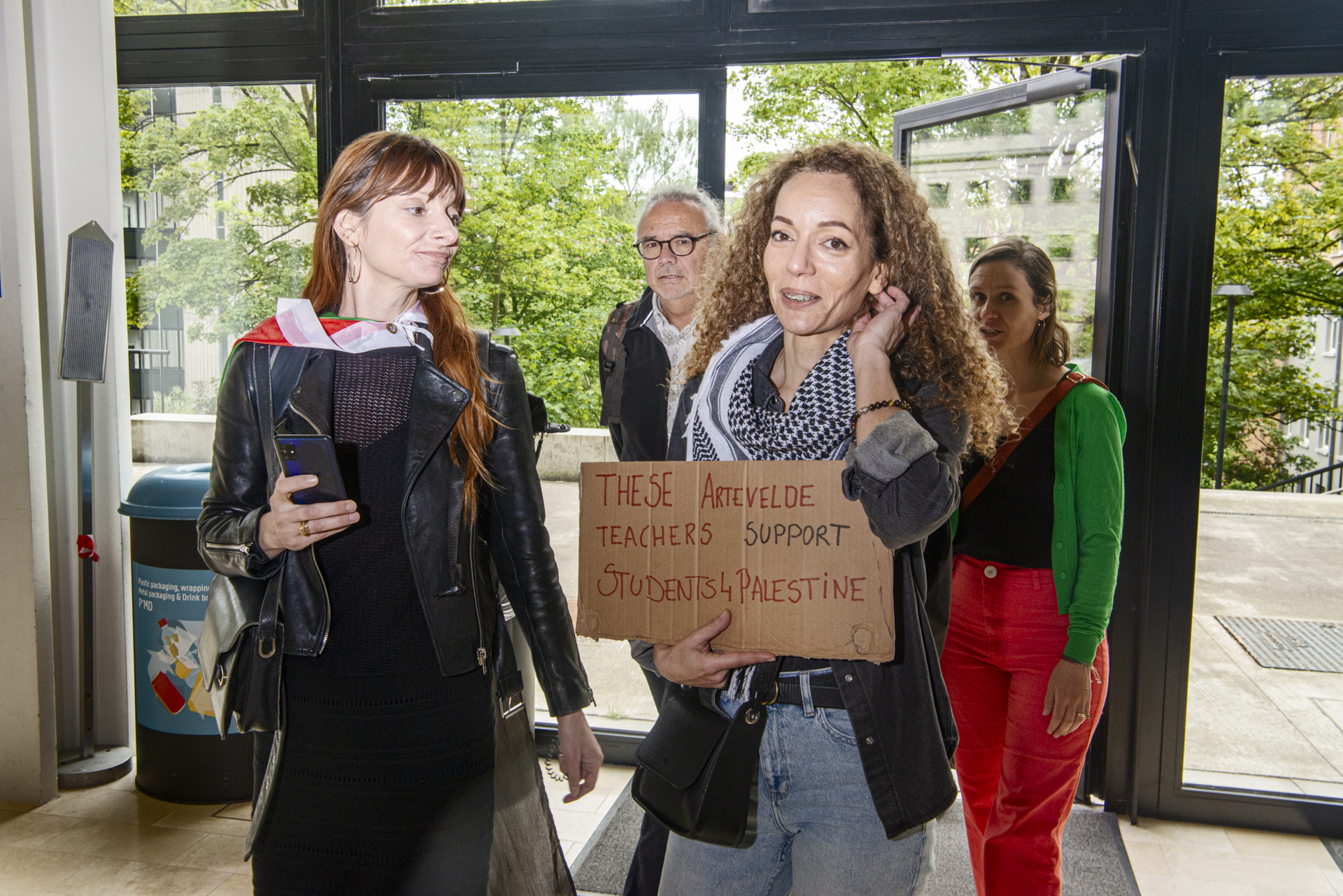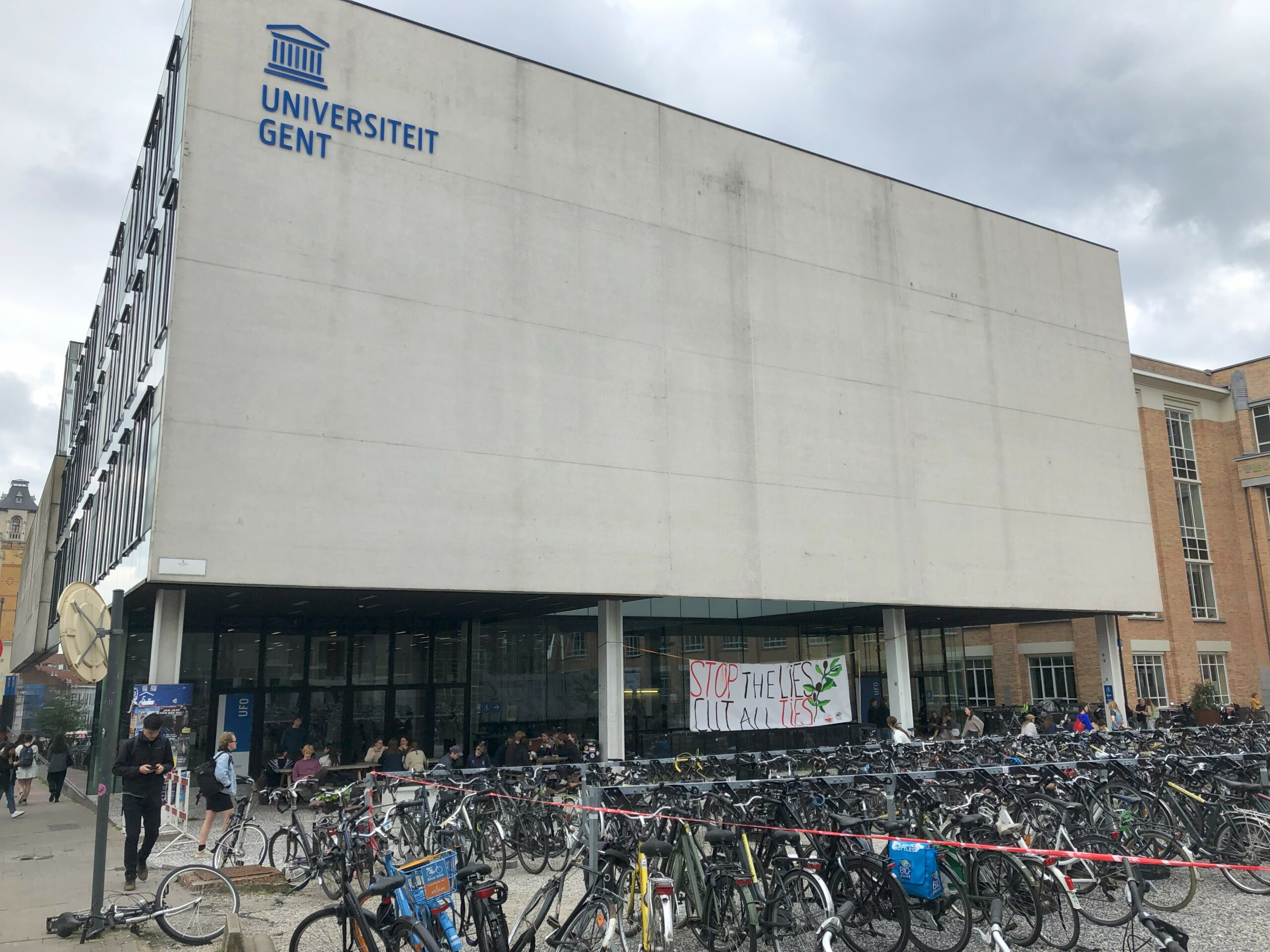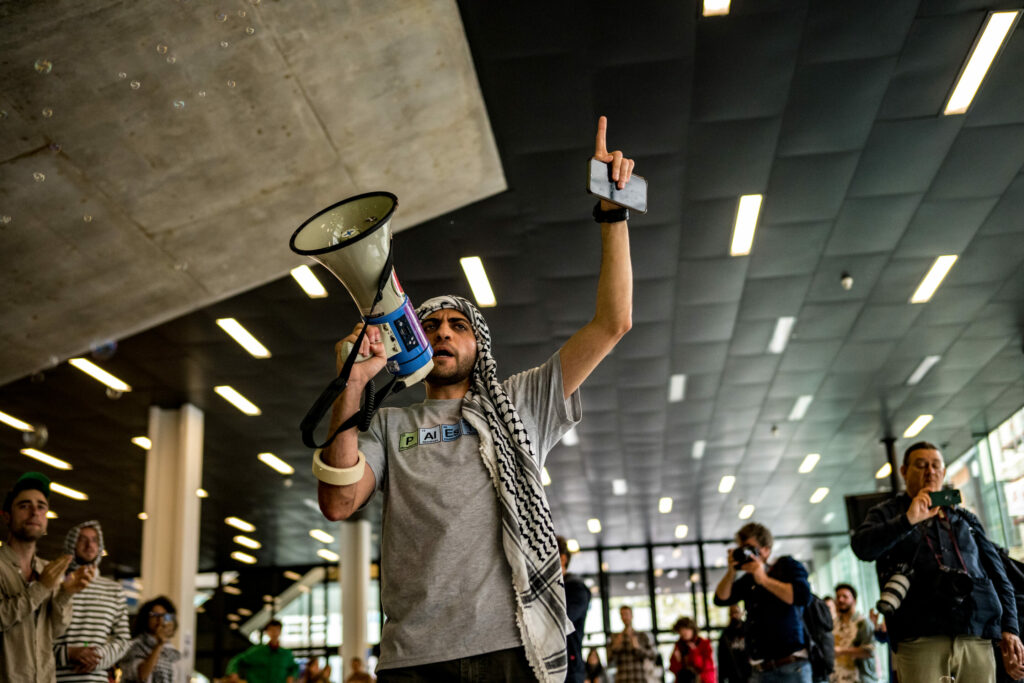Around 100 students at the University of Ghent occupied campus on Monday morning, demanding that the institution cut ties with Israel and present a more transparent climate action policy.
The three-day occupation, led by organisations Ghent Students for Palestine and End Fossil Ghent, is the result of months of inaction on the part of UGent in the face of students' demands.
Students entered the 'UFO' building (where the university's largest auditorium is) at 12:30 on Monday, waving flags, singing chants and pitching tents. Participants arrived from two separate briefings in the town centre (one in English and one in Dutch) where they listed the objectives of their protest, safety precautions and practical information. "Is this your first occupation?" One student asked another with a laugh.
Ghent Students for Palestine and End Fossil Ghent have been campaigning for months, but to no avail. "This escalation [the occupation] came as a result of the university's dismissal of students' demands," a press release published on Monday states. "The organising collectives have sought to hold the university accountable on its commitments to human rights and sustainability. However, the university has failed to take concrete action or transparently communicate its decisions."

Credit: End Fossil Gent
'Calm and cool-headed'
An open letter to the university's Board of Directors outlined UGent's shortcomings both with regard to human rights and sustainability. It criticised a "hypocrisy" on these issues, which are seen as interconnected. Students are calling for two separate "time-bound action plans": one cutting ties with Israeli institutions and the other setting out a clear climate action plan.
The occupation has been described as a "low-risk activity" and is not expected to reach tensions seen on US university campuses in recent weeks. It is the first of its kind in Belgium and will involve a range of activities over three days, such as "active hope" workshops, documentary screenings and arts and crafts activities. Protestors have also set up a communal kitchen and a "safe space" in the interest of looking after mental health.

Credit: The Brussels Times
Those leading the occupation have ensured that all participants are aware of what to do in the event of escalation or security threats. "Respect students, staff and university material," a key organiser told students at one of the briefings. "Don't block entrances or disrupt classes. Stay calm and cool-headed and fight all forms of discrimination."
Lines of communication
Ghent Students for Palestine and End Fossil Ghent have established links with on-campus security and with police, though this is more of a precaution. "We have to be prepared for anything to ensure it all runs smoothly," Joelle (25), a member of Ghent Students for Palestine told The Brussels Times. The protest movement has still not received any official communication from the university itself.
Joelle is a Lebanese Erasmus student who grew up on the Israeli border and feels an emotional connection to the movement on campus. "It is so empowering to see this many students joining the occupation," she said. "There is so much energy."
Outside the encampment, feelings among the student body are mixed. "This is a silly thing to do," one student told The Brussels Times. "It will have no impact on university policy."

Credit: The Brussels Times
Others are less cynical. "I am happy someone is taking action," another student said. "I would take part if I wasn't so busy with exams. Ghent Students for Palestine have held protests on campus every Monday for months and it has made me more aware of the university's policy towards Israel."
Speaking on Radio One on Monday, Prime Minister Alexander De Croo (Open VLD) voiced his support for UGent students occupying campus. "If I were a student today, there is a good chance that I would make my protest voice heard too," he said.
A second open letter signed by over 400 UGent students and staff members expresses solidarity with the occupation and denounces UGent's disregard for the conclusions of its own Human Rights Commission, which called for the severing of ties with Israeli institutions.

